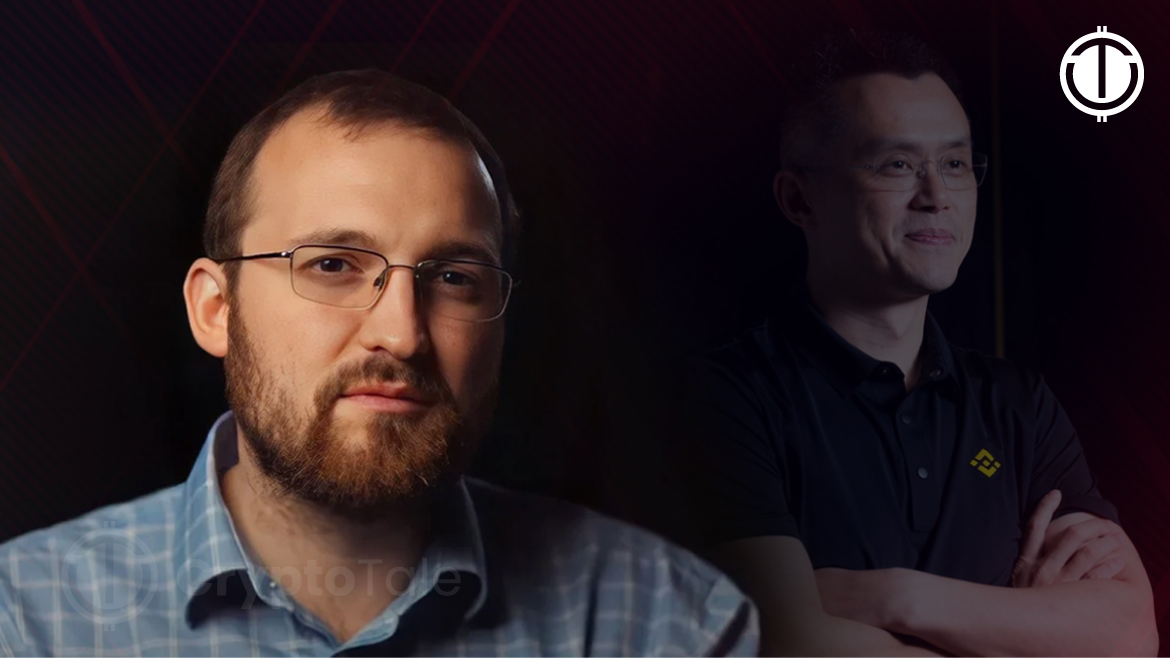- Charles Hoskinson, founder of Cardano, views Changpeng Zhao’s resignation as “the end of an era” in the cryptocurrency industry.
- Hoskinson recognizes Zhao as a pioneering entrepreneur in the second wave of crypto, with trillions of dollars flowing through Binance.
- Cardano CEO outlines a fundamental change in the industry, describing it as a merger between the legacy financial world and decentralized crypto.
In a recent YouTube video, Charles Hoskinson, the founder of Cardano, shared his thoughts on the pivotal moment in the cryptocurrency space—the resignation of Binance CEO Changpeng Zhao. Hoskinson deemed this event as “the end of an era” and delved into the profound changes taking place within the industry.
On November 22, Zhao stepped down from his position following a landmark settlement with United States regulatory agencies. This development comes in the wake of extensive investigations led by the Department of Justice (DOJ) and other agencies into allegations of anti-money laundering and sanctions violations by Binance.
Hoskinson acknowledged Zhao’s role as a pioneer in the second wave of cryptocurrency entrepreneurs, highlighting the significant growth and innovation Binance brought to the sector since its inception in 2017. He recognized Zhao as one of the industry’s greatest entrepreneurs, with trillions of dollars flowing through Binance. He asserted,
He [CZ] was one of the greatest entrepreneurs of our time. Trillions of dollars of assets flowed through his exchange.
However, the narrative, as described by Hoskinson, is shifting. He outlined a fundamental change in the industry, characterizing it as a merger between the legacy financial world and the decentralized crypto space. This shift, according to him, stems from a growing global rejection of the traditional U.S.-led financial system, leaving the crypto industry caught in the crossfire.
Hoskinson emphasized the need for crypto entrepreneurs to adapt to this evolving landscape, asserting that compliance with regulations or the development of completely decentralized systems is essential. He underscored the intricacies of dealing with the U.S. financial regime, which he believes has been weaponized and now demands a partnership approach from crypto businesses.
The Cardano founder pointed out that Zhao’s downfall was not due to fraud but rather his inadvertent facilitation of transactions by entities deemed in opposition to U.S. interests. Hoskinson predicted increased regulatory scrutiny in the crypto industry, expecting liquidity providers and non-custodial wallets like Metamask to face enforcement actions.
Despite these challenges, Hoskinson expressed optimism for the future of the industry. He referenced projects like Midnight, aimed at algorithmically generating law for regulated value transfer protocols, as part of the solution to bridge the gap between decentralization and regulatory compliance.
In conclusion, Hoskinson acknowledged the bittersweet nature of the current state of the crypto industry but maintained that the community’s innovative spirit would prevail. He predicted that the industry’s best days are still ahead, emphasizing the ongoing need for careful consideration, education, and innovation.






